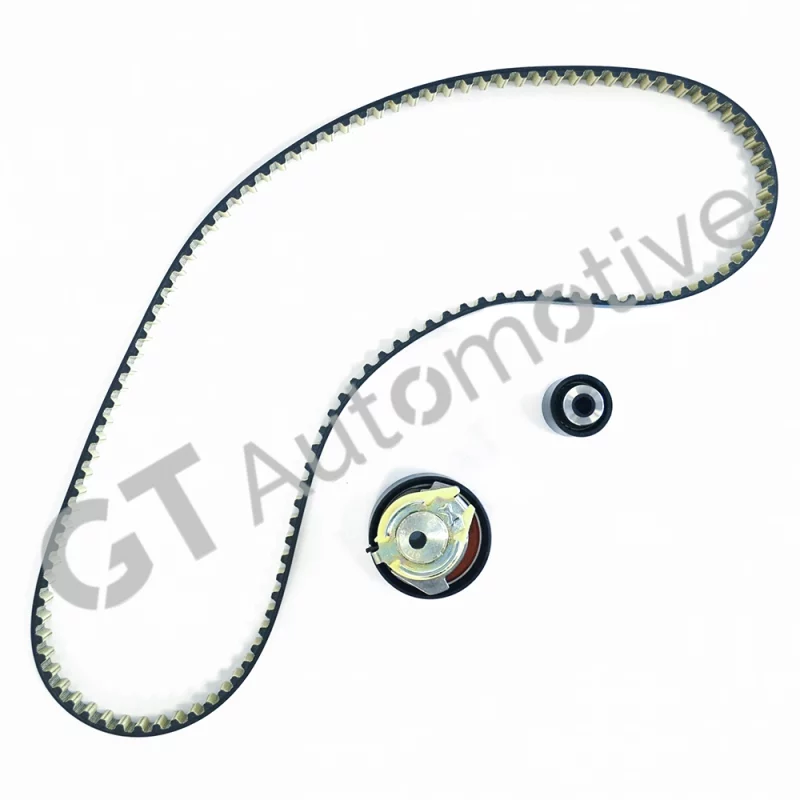The PSA Puretech
The puretech was first introduced to the market in 2012 inside of the early Peugeot 208. In 2014, two new engines joined the puretech family, 1.2l e-THP 110 and 1.2l e-THP 130 turbocharged versions. This was intended to be the new core engine going forward for Peugeot ranges in segments B, C and D, and can still be seen in applications today. This upgrade would boast reduced fuel consumption and reduced CO2 emissions.

The original naturally aspirated 3-cylinder engine is capable of reducing fuel consumption and CO2 emissions by 25% compared to a 4-cylinder engine with the same power. The turbocharged variant would reduce fuel consumption and CO2 emissions by up to 21% compared to a 4-cylinder engine with the same power.
What Vehicles Feature the 1.2 Puretech?
The 1.2 Puretech can be found in the following:
Peugeot
108, 208, 2008, 301, 308 II, 408 II, 3008, 5008, Rifter
Citroen
Berlingo III, C1 II, C3 III, C3/C4/C5 Aircross, C3-XR, C4 Cactus, C4 Picasso
Toyota
ProAce City, Aygo
DS
3, 3 Crossback, 4S, 7 Crossback
Vauxhall
Combo E, Corsa F, Crossland (formerly Crossland X), Grandland (formerly Grandland X), Mokka
Wet Belt
One of the biggest red flags of the puretech is that it carries a wet belt. A wet belt is a type of timing belt which runs while submerged in oil. Inherently, timing belts will begin to fail when they are contaminated with any liquid, including oil. This is because the liquid will soak into the belt material, and this will cause premature wear.
As the belt does its thing, bits of rubber will start to flake off and make their way through to the oil sump filter. Eventually, when enough rubber has accumulated it will begin to starve the engine of oil. In addition, the integrity of the belt will become compromised and can ultimately snap all together.

Overall, wet belts are a bad idea. While manufacturers boast improved fuel efficiency and reduced emissions, the improvements seen will be in the range of 1-2% and the unanimous view within the automotive industry is that it is just not worth it.
You can read more about wet belts here >
High Oil Consumption
Much like the H5F, the Puretech also suffers from oil overconsumption. While PSA are suggesting that the oil needs changing every 10-12,000 miles, engine specialists are recommending this to be done a lot earlier as some people report their engines using 1 litre of oil every 1000 miles. With PSA stating that the acceptable maximum consumption of oil is 1 litre per 4000 miles it shows that there is a clear issue.

One cause could be a faulty PCV valve, which can be easily replaced, however the most common fault is with the Piston Rings. The oil control ring is responsible for restricting the amount of oil which passes through and lubricates the cylinder walls for smooth piston operation. There is a known fault with these rings, where they can become clogged with carbon, allowing an excess of oil to pass through and burn up at a rapid rate.
Engines Recalled
In response to the overwhelming negativity caused by the 1.2 Puretech, in 2021 PSA actually issued a recall on the engine. After some digging it seems this was a reaction to the poor quality of the wet belt and not the problematic rings. Through my research it seems this is still a present issue.
While the faulty Rings have not been addressed yet, PSA have explained the issue behind the crumbling belt. The premature failure is supposedly caused by droplets of unburned fuel sliding down the cylinder walls and mixing into the oil pan. This contamination creates an abrasive mixture causing accelerated degradation of the belt.
Unfortunately, this does not mean a whole lot in terms of reliability of the engine as this just highlights the negatives behind using a wet belt in the first place. The only way to guarantee a longer lifespan of the belt is to ensure the oil is changed regularly during the vehicle’s annual service and that the correct oil is used. Meanwhile, we would highly recommend having the OE Piston Rings exchanged for a higher quality alternative.
GT Automotive Parts
At GT Automotive we stock the parts relevant to the 1.2 Puretech, including Piston Rings exceeding OE quality. We are partnered with Riken, the world leading manufacturer of Piston Rings with a focus on advanced technology and innovative engineering. We have also just introduced the wet belt, adding to our growing range of timing belt kits.




